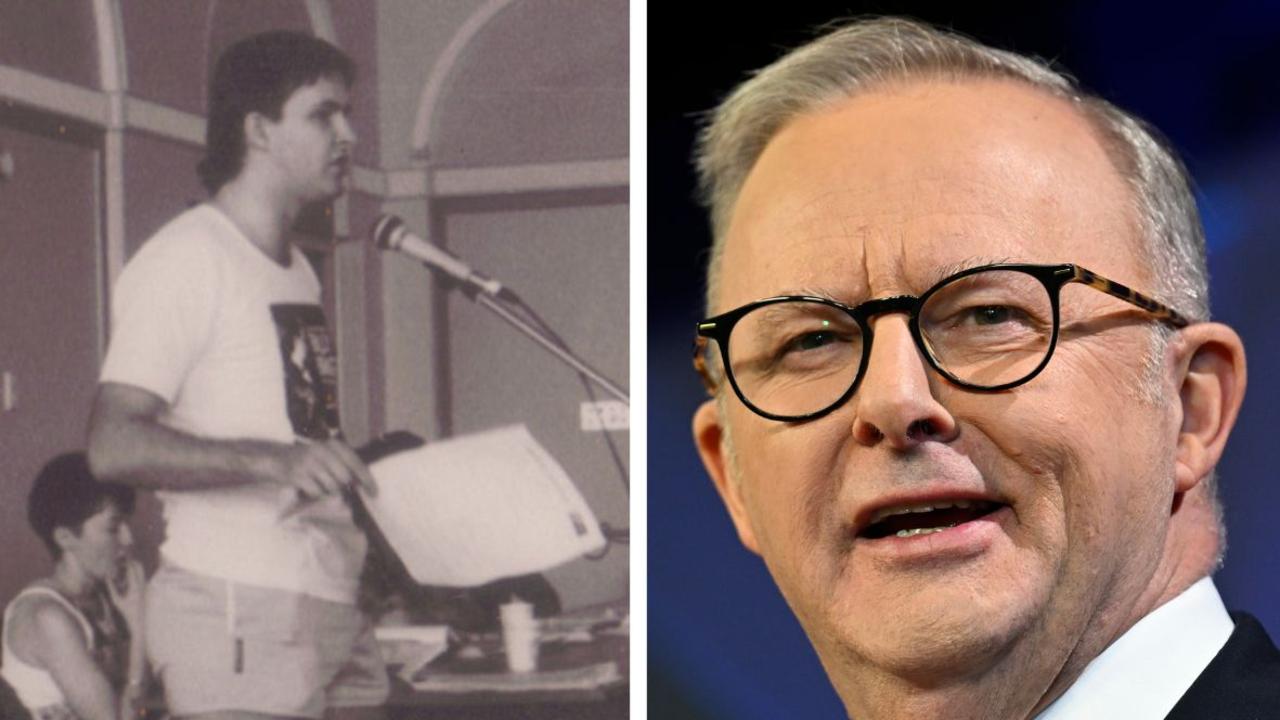Book reveals what Trump’s really like behind closed doors
TWO insiders from Donald Trump’s campaign have revealed what he’s really like in private - and how he “rips the face off” his staff when he’s angry.
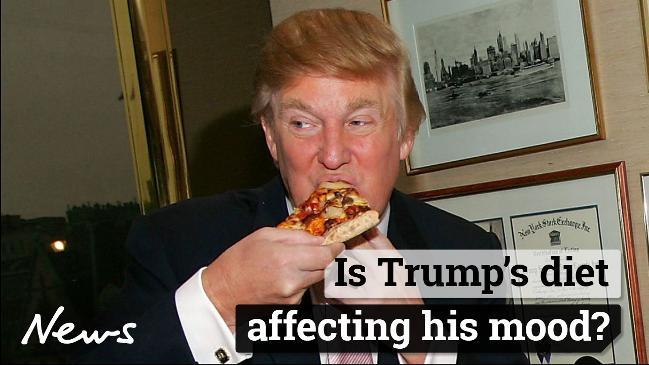
TWO key players in Donald Trump’s campaign have revealed what the President is really like behind closed doors in a revealing new book.
In Let Trump Be Trump, released overnight in the US, Mr Trump’s early campaign manager Corey Lewandowski and deputy campaign manager David Bossie provide an insider’s account of how the real estate developer pulled off the biggest political upset in history.
While the book is at pains to paint the President as a mould-breaking hero, the book unwittingly provides a steady stream of laugh-out-loud moments that often make Mr Trump look like a petulant brat incapable of admitting his own mistakes.
It’s worth noting that the book is nakedly self-serving. Mr Lewandowski and Mr Bossie are both out to claim credit for their role in Mr Trump’s election, and they strangely refer to themselves in the third person throughout the book, despite being billed as its sole authors.
With that in mind, here are some highlights.
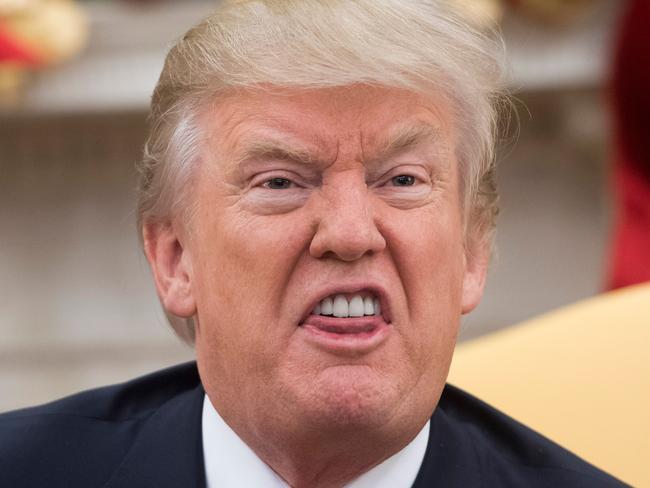
TRUMP WILL ‘TEAR THE FACE’ OFF STAFF WHEN HE’S CRANKY
Temper, temper, Mr President.
The book’s 278 pages are a parade of colourful anecdotes about Mr Trump tearing shreds off his staff members and chucking tantrums when things don’t go his way.
“Sooner or later, everybody who works for Donald Trump will see a side of him that makes you wonder why you took a job with him in the first place,” the book says.
“The mode that he switches into when things aren’t going his way can feel like an all-out assault; it’d break most hardened men and women into little pieces.
“Around the campaign, we call it getting your face ripped off.”
In one episode described in the book, Mr Trump turns his rage towards campaign manager Paul Manafort, who the candidate felt was trying to control him during debate prep.
“Am I a baby, Paul?” Mr Trump thundered.
“You think you’re so f***ing smart! Like you’re a genius! Well, you suck on TV.”
After the blast, Mr Manafort “looked like a crushed blue beer can”.
In another encounter, Mr Trump went “f***ing ballistic” when he read a tweet that claimed Mr Manafort wanted to limit the candidate’s appearances on TV.
“Did you say I shouldn’t be on TV on Sunday?” Mr Trump screamed to Mr Manafort down the phone while in a helicopter.
“I’ll go on TV anytime I goddamn f***ing want and you won’t say another f***ing word about me.”
Another episode in the book presents Mr Trump as decidedly ungrateful to Republican Rudy Giuliani after he took a whole round of bullets for the candidate.
When the infamous “grab ’em by the pussy” tape was leaked in the final weeks of the campaign, nearly all of Mr Trump’s supporters abandoned him.
However, the New York mayor put his hand up to appear on all five Sunday morning TV shows to defend the candidate.
After being bollocksed by the toughest political journalists in the country — picture going five rounds with Leigh Sales — this is how Mr Trump thanked Mr Giuliani.
“Man, Rudy, you sucked. You were weak. Low energy,” Mr Trump told him.
Mr Trump also tore strips off his media adviser Hope Hicks when she once forgot the steamer used to take wrinkles out of his suit.
“Goddammit, Hope! How the hell could you forget the machine? I want it now!” Mr Trump bellowed.
It was not a mistake she would repeat.
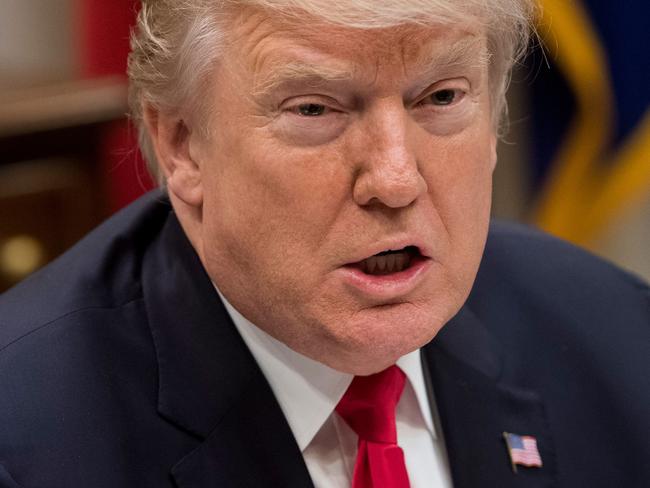
HE HAS THE TASTES OF AN EIGHT-YEAR-OLD
The authors say that Mr Trump’s campaign ran on junk food — and one of the greatest challenges was making sure you had it hot and ready whenever the candidate happened to grow peckish.
No joke, the book says: “The orchestrating and timing of Mr Trump’s meals was as important as any other aspect of his march to the presidency.”
Mr Trump hardly ever ate lunch, but dinner was usually Macca’s washed down with a chocolate thickshake, which he referred to as a “malted”.
And Mr Trump’s order had a hint of the Hamburglar about it.
One night in Chicago, the candidate ordered two Big Macs, two Fillet-O-Fish burgers and a chocolate “malted”.
“On Trump Force One, there were four major food groups: McDonald’s, Kentucky Fried Chicken, pizza and Diet Coke,” the book says.
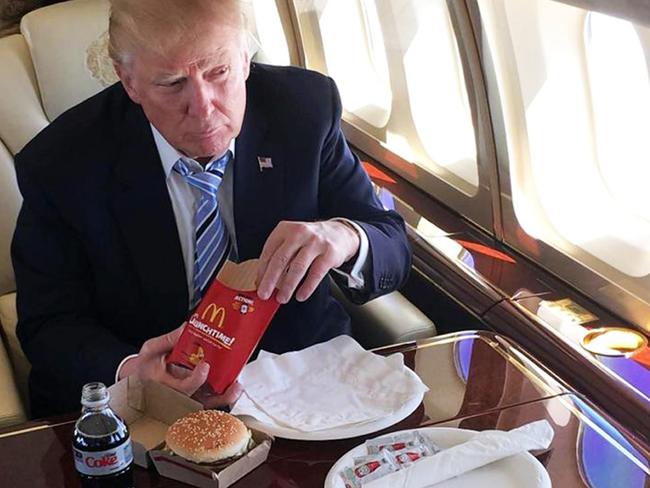
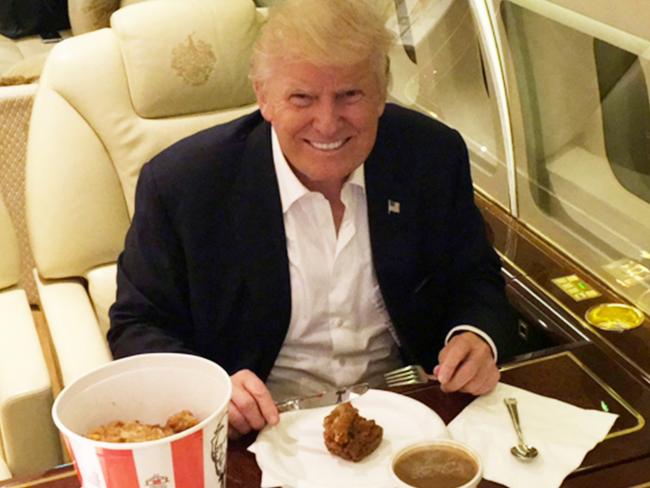
Mr Trump, who the authors refer to as “the boss”, is also painted as a germaphobe who would only eat his beloved Oreo biscuits if the packet was unopened.
“If you’ve seen the Seinfeld episode in which George double-dips his chip, you have a pretty good idea of the boss’s reasoning,” the books says.
Another fun fact from the book: Trump LOVES Elton John and will blare his music “loud enough to rattle your brain”.
Donald, you’re a star in the face of the sky.
HE’S SUPER SUPERSTITIOUS
The book describes Mr Trump as “one of the most superstitious men that most people have ever met”.
It says he throws salt over his shoulder before meals and pre-emptively celebrating a win is seen in Team Trump as inviting “bad juju”.
Mr Trump’s presidential victory speech was written on the fly because he considered it bad luck to prepare one ahead of time.
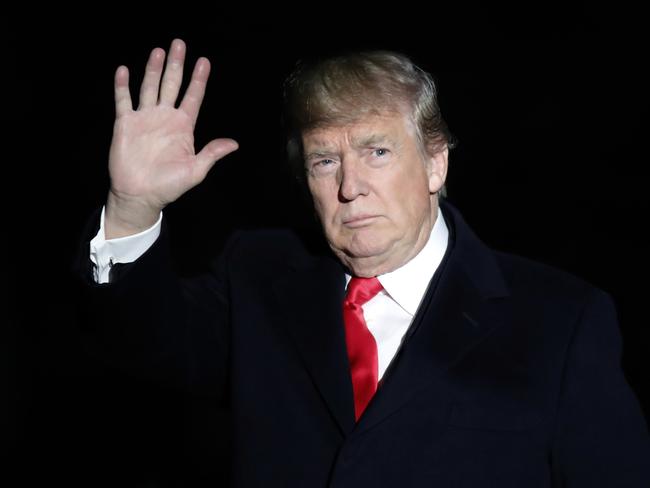
THE EGO HAS LANDED
While a big ego is surely a prerequisite for anyone running for president, the book shows that Mr Trump’s high opinion of himself is off the charts.
During a meeting with Mr Lewandowski in the campaign’s infancy, Mr Trump began boasting of his riches for no apparent reason.
“I want you to know I have the greatest air force in the world,” Mr Trump said, apropos of nothing.
“I’ve got a 757, I’ve got a Citation X. And I’ve got three helicopters.
“I also have a bunch of houses and 17 golf courses.”
Mr Lewandowski explained the “gratuitous boasting” by saying his “thoughts sometime come out like pieces of a puzzle”.
“Sometimes the puzzle pieces form a masterpiece,” the book suggests.
The book makes clear that Mr Trump “never apologises” — and in fact he never feels the need to ask God for forgiveness.
The blame for mistakes is always placed at the feet of his staff.
“I’m doing a great job, but my staff sucks,” Mr Trump told Mr Lewandowski after his inauguration.
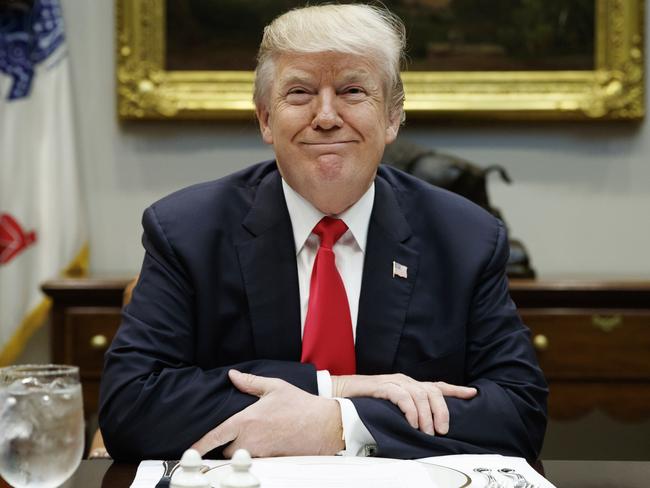
THE CAMPAIGN’S IGNORANCE WAS A STRENGTH
Despite having the backing of a multi-millionaire, the Trump campaign started small, little more than a cubicle wedged into the 24th floor of Trump Tower in New York.
In fact, the authors view the team’s political ignorance as a strength — because “they never saw us coming”.
“It’s remarkable when you think about it,” the book says. “Donald Trump launched his presidential campaign with a tweet, an escalator ride and a staff that mostly wouldn’t know the difference between a caucus and a cactus.
“There were no pollsters, media coaches or focus groups. No speechwriter, no ‘senior strategist’ or any of the other types of ‘professional’ political consultants like the ones who had failed for the last eight years to elect a Republican president.
“We were the island of misfit toys.”
In the early days of the campaign, Mr Trump spoke off the cuff almost exclusively, and he greatly resisted being prepped for debates with standard talking points. The voters got Trump uncut, for better or for worse.
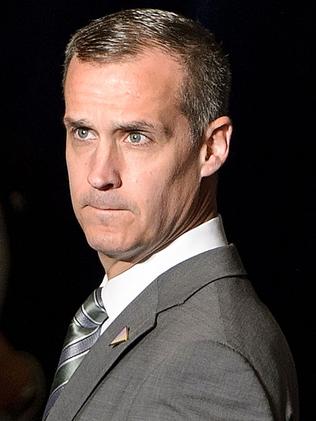
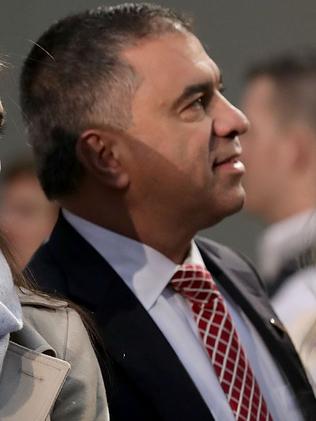
HIS WAR ON POLITICAL CORRECTNESS WON THE ELECTION
What the book gets right is its appraisal of Mr Trump’s ability to reach and inspire American voters by eschewing political correctness.
The book shows that Mr Trump knew how to speak to crowds from the beginning.
“He mesmerised the crowd, which numbered a thousand or more,” the books says of an early rally.
“They gave him a thundering standing ovation.”
It also sings the praises of his politically savvy “America first” policies, which resonated with heartland voters.
“Do you want to know why no politician had a chance against Donald Trump in the primaries? He told it like it was.”
By the time his debates with Hillary Clinton rolled around, he had honed his messages.
“His assault on political correctness resonated with people across the country,” the book says.
“Whether it was Rosie O’Donnell’s weight, or a federal judge, or any of the reporters following the campaign, no one was off-limits.
“And only Donald Trump could get away with what he got away with.”
The authors say his opponents and the media were “tone deaf” to the voters’ views on immigration and radical Islamic terrorism.
“They were tired of the PC doubletalk from coastal elites and even more tired of those condescending attitudes,” the book says. “The boss took a flamethrower to all of it.”
The authors appear completely comfortable with some of the President’s most jarring comments during the campaign, such as when he referred to Mexicans sending their “rapists” across the border, and when he said senator John McCain was “not a war hero” because “he was captured”.
Frankly, it didn’t matter whether Mr Trump was spouting falsehoods.
“It didn’t matter to the people who listened to Trump whether the boss had gotten the details correct,” the book says.
“His words captured the way they felt, and that’s all that mattered to them.”
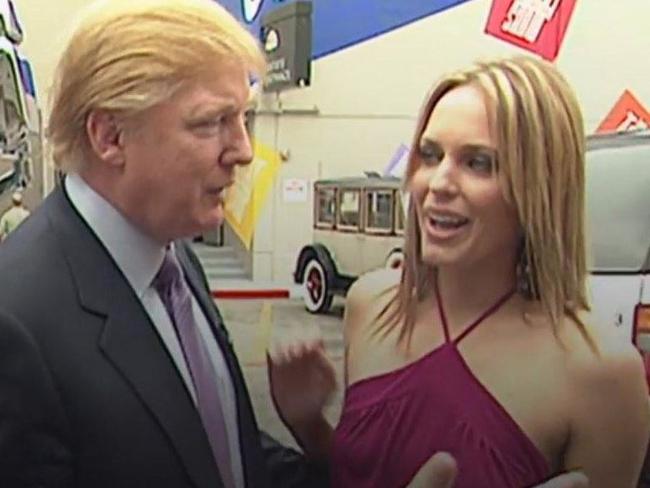
NO ONE — HIM INCLUDED — THOUGHT HE WOULD WIN
Mr Trump likes to point out that the “fake news” media was dead wrong when they wrote him off as a presidential candidate.
But the book makes clear that from the announcement of his candidacy right up until election night, even Mr Trump himself doubted he would win.
Steve Bannon, who went on to serve as the campaign’s chief executive, laughed at the prospect of President Trump in 2012.
“He’s got a zero chance. Less than zero,” Mr Bannon told Mr Bossie.
There are countless times in the book where even the most senior members of Mr Trump’s staff wrote off his campaign.
For Mr Lewandowski, it came when Mr Trump criticised Senator McCain’s war record.
The Access Hollywood tape and the string of women who accused him of sexual misconduct made Mr Trump ponder defeat in the campaign’s final month.
“Well, I can always go back to my old life, take a long vacation,” he said.
As we all know, election night had a happy ending for the mercurial reality TV star.
He was as shocked with the result as anyone.
“Dave can you believe this?” he told Mr Bossie after the result.
“We just started this to have some fun.”



